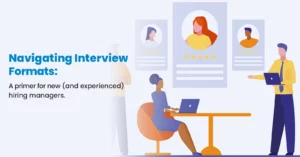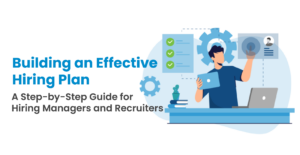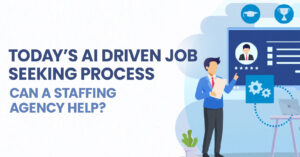The future of work isn’t so far away anymore – in fact, we’re already working in it. Disruptive changes to business have created a profound impact on the employment landscape. While organizations on a global scale have been bracing to meet the significant opportunities and challenges incited by globalization, technological progress and shifts in demographics, talent leaders are also re-examining the people and skills required to meet the demands of our ever changing work world.
The World Economic Forum reports that in many industries and countries, the current most in-demand occupations or specialties did not exist 10 or even five years ago. At this pace of change, a popular estimate is that 65 per cent of children entering primary school today will end up working a job that doesn’t even exist yet.
As major drivers for transformation continue to affect global industries, impacting both job creation and job displacement, talent leaders must prioritize the candidate traits required to overcome widening skills gaps.
Below is a list of traits employers should be looking for when bringing talent into their 2020 and beyond workforce:
Adaptability
The ability to adapt is critical to a competitive workforce, and as such, it’s important to note the shift in workforce demographics as the younger generation worker enters the workforce, coming with a whole new slew of habits and expectations. New research from LinkedIn Learning finds 76 per cent of Gen Zs (who are expected to make up 36 per cent of the global workforce this year) believe the skills necessary in today’s workforce are already different than ones required of previous generations, and they’re aware their jobs may not exist within the same form 20 years from now.
84 per cent of Gen Z workers look for an employer to help them develop job-specific skills.
Although the technical skills are still important with the growing culture of a remote workforce, the focus on soft skills is important to having a dispersed one. The traditional 9-5 in office work model may no longer be the norm, and being flexible and able to adapt is going to be key to the next generation of workers.
‘Adjacent skills’
It’s estimated that almost 120 million workers world-wide will need to be retrained due to AI and automation within the next three years, yet the most important traits employers are looking for have nothing to do with technology. Top performing organizations are engaging talent with “adjacent skills.” These are the soft skills that demonstrate the ability to work with related technologies, eventually lending their skills to an organization’s future needs.
In fact, employers have identified these three traits being in most demand:
1) Willingness to be flexible, agile and adaptable to change.
2) Time management skills and ability to prioritize.
3) Ability to work effectively in team environments.
A willingness and ability to reskill or upskill their knowledge
It’s also important to take into consideration the traits of your current talent!
Re-skilling might not be appropriate for your entire employment-base, as the new roles may not be of interest to your existing employees. However, employers that have engaged employees who are loyal to the organization and demonstrate the ability to learn new skills, have already removed one of the biggest hurdles of hiring employees: Cultural Fit.
Workers who are challenged to develop and grow are often the happiest at an organization: Upskilling provides learning and training programs that will give workers the tools to build upon existing skills to keep up with a changing landscape.
Providing workers with opportunities for further training or the chance to take on new responsibilities is a valuable retention strategy that talent professionals are investing in. Globally, 54 per cent of organizations are allocating dollars to providing additional training and development for workers.
Cultural awareness and inclusion sensitivity
Workplace diversity and inclusion is critical to increasing an organization’s productivity, creativity and innovation. Talent with varying backgrounds and skill sets bring different experiences and perspectives to the organization’s culture and its approach to finding new ways to make the old better.
Organizations with inclusive cultures are twice as likely to meet or exceed financial targets, three times as likely to be high-performing, six times more likely to be innovative and agile, and eight times more likely to achieve better business outcomes. It’s important to note, however, that HR leaders can create D&I programs, but without executive support from the top, lasting change won’t happen.
Younger workers are the most diverse generations in the workforce and 77 per cent of Gen Zs say that a company’s level of diversity affects their decision to work there.
The World Economic Forum’s “The Future of Jobs” elaborated on the top 10 skills prioritized by employers for 2020. They are:
1. Complex problem solving
2. Critical thinking
3. Creativity
4. People management
5. Coordinating with others
6. Emotional intelligence
7. Judgement and decision making
8. Service orientation
9. Negotiation
10. Cognitive flexibility
In such a rapidly evolving workforce, the ability to anticipate and prepare for future skills requirements is growing increasingly more critical for organizations that plan on remaining competitive in today’s digital landscape.
The Voice of Talent: Return to the Office Report
Procom recently surveyed over 1,000 knowledge workers to discover how and where they prefer to work as offices re-open across North America.
The Voice of Talent Report offers actionable insights into what workers expect in relation to mandatory vaccinations, remote work preferences, The Great Resignation, COVID-19 safety measures and more.
Access your complimentary copy to discover how to attract talent in a post pandemic world: {{cta(‘876b6743-23dc-425b-b245-80dba677a9c7′,’justifycenter’)}}




